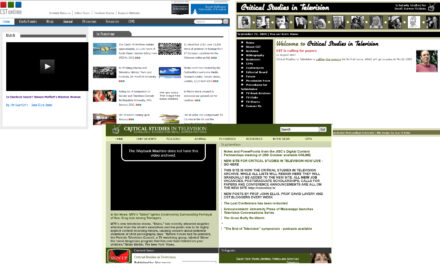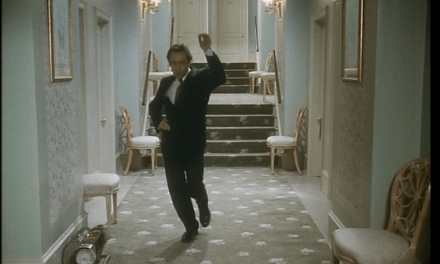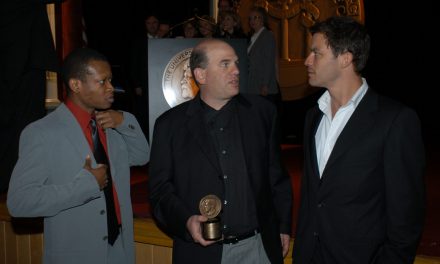A murder has, yet again, been committed in a small town in Maine. The local sheriff is baffled. Fortunately, however, the town’s most famous resident, retired English teacher turned mystery novelist Jessica Fletcher (Angela Lansbury), is on the case!
The above describes the typical plot of an episode of Murder, She Wrote (CBS 1984-1992, from now MSW), with occasional variations involving Jessica travelling somewhere in the world and someone she knows and/or someone who is a fan of her work becoming embroiled in a murder. Unlike most outsiders to state or national law enforcement agencies in such texts (cf Matzke and Mühleisen, 2006), Jessica is never characterised as a private investigator nor does she have any credentials relating to the law. She is portrayed as clever and insightful and, in many respects, very similar to a ‘Golden Age’ detective a la Miss Marple (Hoffman 2016) but she is always positioned as a novelist. This can lead to varying responses by the law enforcement officials with whom she interacts, but by the end of every episode she is always proved correct.
So far, so crime drama.
But, if one believes a certain fan theory, Jessica has a dark secret which could potentially call into question a great many of her cases. That secret being that she is, in fact, the most prolific serial killer in history rather than a prolific crime novelist or investigator. This clearly oppositional reading (Hall, 1980) has cropped up in many other media, including a reference by John Oliver in a Last Week Tonight segment and Tweet (2017) in which it was clearly expected that the audience would be familiar with such a reading as LWT offered no real context for their intertextual reference. That the fan theory is still prevalent even after the series has been out of production for decades illustrates that it has entered into collective memory. The question, of course, is why.
A fan-made montage of Murder, She Wrote proving that it is Jessica who did it!
The most obvious reason is analogous to one I argued in a previous blog about The X-Files (Fox, 1993-2018); the series’ ubiquity. MSW is a staple of both domestic and transnational networks,[1] currently running on the ‘Great American Family’ network in the US.[2] Kompare (2005) argues that reruns help create national identity and both the series and the fan theory can be read as having been incorporated into that identity. Affective play, noted by Hills (2002) as a key element of fan activity, can also be assumed, as this is clearly a playful oppositional reading. But there do seem to be textual and paratextual factors at work as well as fan and industrial elements which are supporting this fan theory and it is to those I now turn.
Gray (2010) notes that casting can function as a form of intertext and/or paratext. Lansbury’s role in The Manchurian Candidate (1968), in which she played a politically powerful socialite who was also a Communist spy, can be thought of as predisposing or at least allowing (inter)textual space for reading Lansbury’s Jessica as having an ulterior motive or other hidden agendas. But the overlapping of text and paratext with the series does extend beyond that. MSW was created and produced in part by Lansbury’s husband Peter S. Fischer and Lansbury herself was an executive producer on the series. This, it can be argued, would have given her more control over her character and the series, but characteristics of the creators/showrunners can be conveyed onto the series, at least in terms of audience perception. A series can be interpreted by an audience as being almost pseudo-autobiographical (cf Newman and Levine, 2012, Beattie, 2017). While this does not imply the audience would perceive Lansbury as a serial killer, the fact that she herself is part of the author-function is relevant when viewed in conjunction with Jessica always being positioned as a novelist. Thus Lansbury/Jessica can be read as having authorial control/intent over both the diegesis and the extradiegetic text. In other words, she is not bound by the text but can cross over, meaning that she can be read as different if not necessarily Other.
This combination of control and movement across the bounds of the text can then be combined with the routine tropes of crime fiction. In addition to the improbability of so many murders taking place around Jessica where she is the only common factor, she always inserts herself into the investigations, regardless of which law enforcement jurisdiction she is in. Private investigators must usually wait for a client, but this is not necessarily required of a novelist whose friends and neighbours routinely drop dead. Crime dramas themselves, however, often comment upon how perpetrators will insert themselves into an investigation, generally to deflect suspicion from themselves, so Jessica’s constant involvement can be interpreted in that way as well as part of working on a case as would be seen in crime fiction about a private investigator. The fact that Jessica is always proved correct and that the majority of characters praise her fulsomely can evoke the idea of a ‘Mary Sue,’ or author-insert character. This, again combined with Jessica being a novelist and Lansbury being an ‘author’ of the text as an executive producer, can be read as reinforcing the argument that Jessica is writing the ‘official record’ (i.e., novels or even the series) in such a way as to cover her own crimes.
The sleepy town of Cabot Cove, Maine, had a per capita murder rate of higher than Honduras, assuming Radio 4’s More or Less podcast is correct (‘Monkey,’ 2012). Anywhere in the world that Jessica Fletcher went also seemed to experience a spike in homicides, generally somewhere in her vicinity. While this can all be attributed to the needs of a twelve-season-long crime drama, it also still seems awfully suspicious. Perhaps, as with Cabot Cove itself, there is far more going on under the surface than meets the eye. Someone should probably look into that.
Dr Melissa Beattie is a recovering Classicist who was awarded a PhD in Theatre, Film and TV Studies from Aberystwyth University where she studied Torchwood and national identity through fan/audience research as well as textual analysis. She has published and presented several papers relating to transnational television, audience research and/or national identity. She will be joining the American University of Phnom Penh in August 2023 as an Assistant Professor of English/Humanities. She has previously worked at universities in the US, Korea, Pakistan and Armenia. She can be contacted at tritogeneia@aol.com.
Footnotes
[1] I have thus far watched the series in the US, UK and Australia.
[2] Yes, that is the actual name of the network. Yes, Dame Angela Lansbury was born in the UK, not the US.
References
Beattie M (2017) ‘My’ Hero or Epic Fail? Torchwood as Transnational Telefantasy. Palabra Clave 20(3): 722-762. https://doi.org/10.5294/pacla.2017.20.3.7
Gray J (2010) Show sold separately: Promos, spoilers, and other media paratexts. NY: NYU Press.
Hall S (1980) ‘Encoding/decoding.’ in Hall, S., D. Hobson, A. Lowe & P. Willis (eds.) Culture, Media and Language. London: Hutchinson.
Hills M (2002) Fan Cultures. London: Routledge.
Hoffman M (2016) Gender and Representation in British ‘Golden Age’ Crime Fiction: Women Writing Women. Houndmills: Palgrave MacMillan.
Kompare D (2005) Rerun nation: How repeats invented American television. London: Routledge
Matzke C and Mühleisen S (2006) Postcolonial postmortems: Issues and perspectives. In Matzke C and Mühleisen S (eds), Postcolonial Postmortems: Crime Fiction from a Transcultural Perspective. Amsterdam: Rodopi, pp. 1-16.
Monkey M (2012) Which fictional TV town has the highest murder rate? The Guardian, 23 August. https://theguardian.com/media/mediamonkeyblog/2012/aug/23/fictional-tv-town-murder-rate.
Newman, M. Z., Levine, E. 2011. Legitimating Television: Media Convergence and Cultural Status. London: Routledge.





